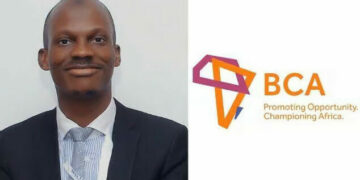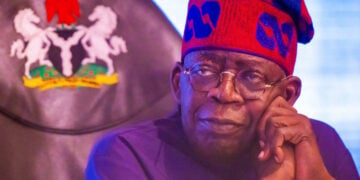In January 2023, a Statista study revealed that about 38 percent of Nigeria’s population has access to the internet compared to the United Kingdom where 93 percent of the population has internet access. The internet provides access to information that can liberate users politically, socially, and economically.
Yet, over half of Nigeria’s population does not enjoy digital dividends due to digital illiteracy, lack of access to digital devices, and bad internet connectivity. Nigeria’s digital divide – the gap between various parts of Nigeria in accessing the internet – hinders many Nigerians from accessing relevant information that can be helpful to work as they desire in the digital age.
Nigeria can bridge the digital divide by introducing practical courses on information and communications technology (ICT) in schools, establishing internet centers that cover all local governments, and offering tax credits to private companies to encourage investments in digital infrastructures.
Most schools in Nigeria focus more on theory than practical teaching due to insufficient funds and inadequate equipment. Nigerian schools only teach students to define and describe ICT concepts. These students need to practice how to use ICT tools. The Nigerian government should better fund schools to equip them with ICT tools to offer practical classes.
Tertiary schools should incorporate real-world use cases of technology tools like content creation, web design, software engineering, animation, and data analysis into their curricula. Although it may be costly for schools with limited resources, the government can partner with credible non-profit organizations like the African Education Foundation, Mastercard Foundation, and Junior Achievement Nigeria. These non-profit organizations could assist with funding and training to realize digital literacy.
The government should work with private companies to establish community internet centers to aid the practice of technological concepts taught in schools. These internet centers should be equipped with computers, strong internet connection, projectors, and keyboards, amongst others, to accelerate learning and make practices enjoyable.
China’s ICT revolution in the late 1990s and early 2000s is a prime example of a successful infrastructural development project. The country invested 460 million CNY in the program to procure digital teaching materials and hire personnel for 384,000 schools in rural areas. Nigeria, with a comparatively smaller population than China, can adopt a similar strategy with the help of its strong private sector to improve digital literacy amongst its citizens.
Furthermore, the Nigerian government should encourage private sector investment in digital infrastructure through a tax credit scheme. A digital investment tax credit scheme can spur private companies to convert income taxes payable into construction costs for digital infrastructures.
Many Nigerian communities need cell towers and broadband infrastructures that offer speedy internet access. A study conducted by Speedtest pegs Nigeria’s average broadband internet speed at 20.97 megabits per second, which is lower than the broadband internet speed in Congo, Togo, Burkina Faso, and many other African countries.
A digital tax credit scheme would enable internet service providers to increase the number of cell towers and broadband infrastructure, thus improving internet connectivity in the country.
Nigeria needs to improve in digital literacy and internet connectivity, as the digital divide has undeniable consequences on the country’s economic strength. Digital divide results in limited access to job information, low work efficiency due to bad internet connectivity, and economic inequality.
However, the government can tackle these effects of the digital divide by creating community internet centers, making digital literacy a part of the school curriculum, and collaborating with the private sector to improve internet access. With these efforts, Nigeria will witness enhanced internet service delivery, employment opportunities, and economic equality.
– Arojojoye is a writing fellow at African Liberty.




